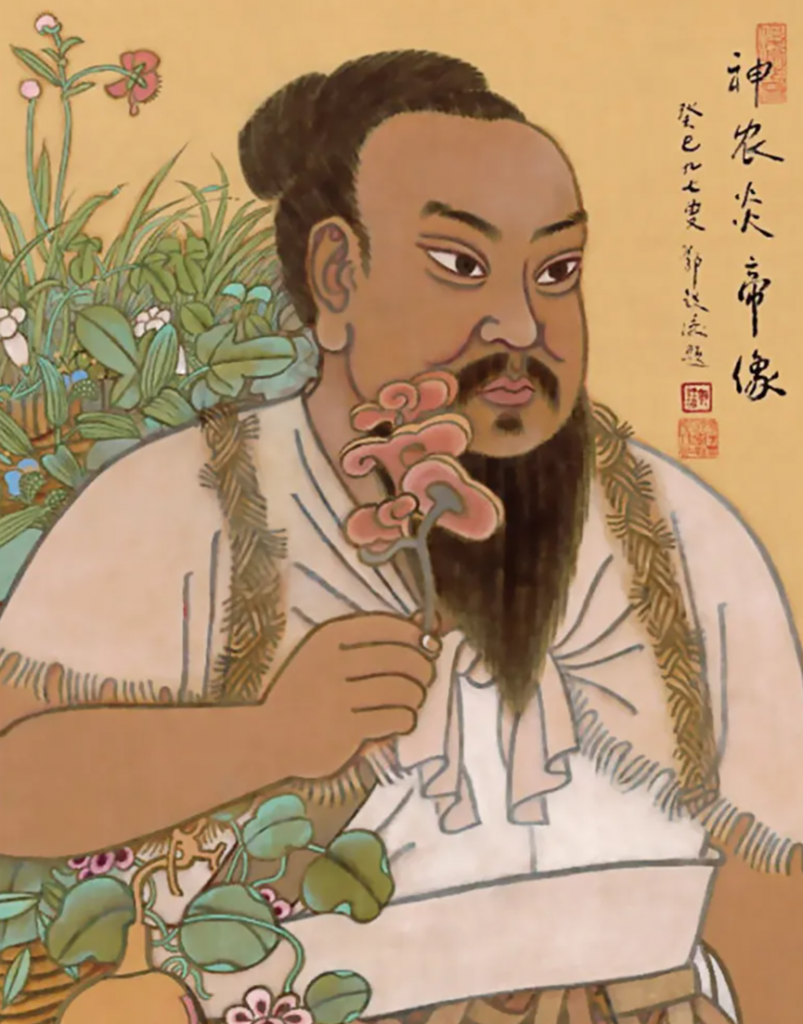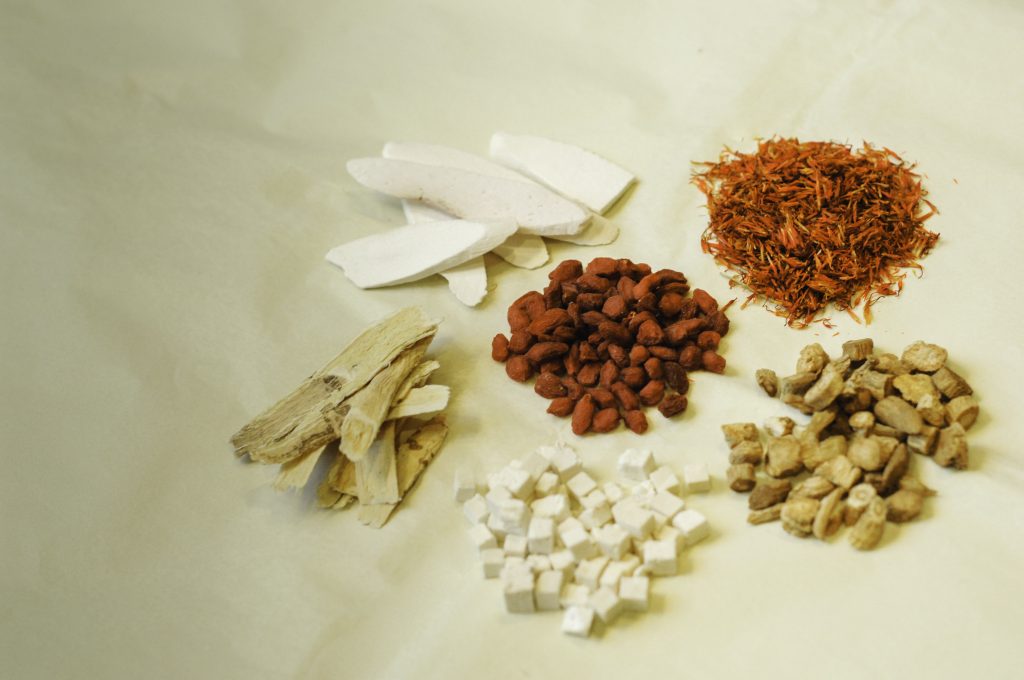Traditional Chinese medicine (TCM) mainly consists of plant based medicines (roots, stems, leaves, fruits), animal medicines (viscera, skin, bones, organs, etc.) and mineral medicines. Chinese herbs have been used for centuries. Among the earliest literature are lists of prescriptions for specific ailments, exemplified by the manuscript Recipes for 52 Ailments, found in the Mawangdui which were sealed in 168 BCE.

The first traditionally recognized herbalist is SHEN NONG, a mythical god-like figure, who is said to have lived around 2800 BCE. He allegedly tasted hundreds of herbs and imparted his knowledge of medicinal and poisonous plants to farmers. His SHEN NONG BEN CAO JING (神农本草经, Shennong’s Herbal Classic) is considered as the oldest book on Chinese herbal medicine. It classifies 365 species of roots, grass, woods, furs, animals and minerals into three categories of herbal medicine:
- The “superior” category, which includes herbs effective for multiple diseases and are mostly responsible for maintaining and restoring the body balance. They have almost no unfavorable side-effects.
- A category comprising tonics and boosters, whose consumption must not be prolonged.
- A category of substances which must usually be taken in small doses and for the treatment of specific diseases only.
Clinically, a single herb is unlikely prescribed for treatment purpose. The TCM herbalist usually need to write a individual herbal remedy formula that normally combines several different herbs in different doses. In a professional TCM herbal formula, there shall be four types of herbs that assist, balance or even compress other herbs for a better healing effect. In order to present these four types of herbs in a clear and accurate manner, traditionally, they are catalogued as ‘The Lord, The Minister, The Guide and The Envoy ‘.

The purpose of using herbal medicine is not just to target a certain symptom, but to promote the whole body system’s function. But please always keep in mind that medicines and Chinese herbal medicines are commercial medicines with side effects. Some people mistakenly believe that these are natural herbs and that they are 100% safe, which is not correct.
